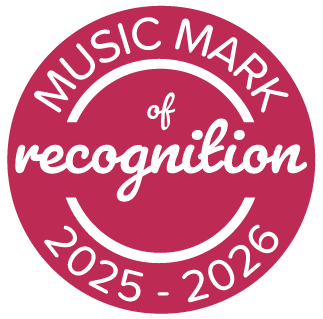

Being a Geographer at Gomeldon Primary School
Intent
At Gomeldon Primary School, we are committed to a high-quality, enquiry-based geography curriculum that will help pupils, in particular our most disadvantaged learners, to gain a coherent knowledge about a diverse range of places, people, resources, natural and human environments and the Earth’s key physical and human processes. It should inspire in pupils a curiosity and fascination about the world and its people, that will remain with them for the rest of their lives. Enquiry-based learning equips pupils to ask perceptive questions, think critically, analyse evidence, sift arguments, and develop perspective and judgement. Being a geographer enables pupils to form a relationship with the environment and show respect for this locally, nationally and internationally. As knowledge and skills develop, pupils will be able to reflect on the links between human activity and its impact on the natural environment. Where possible, we will capitalise on the geographic beauty and diversity of our local area and enrich learning opportunities through educational visits and visitors to the school.
How does being a Geographer link with our school values:
Reflection: Pupils will reflect on what it means to be a geographer and the key knowledge and skills required to do this successfully. Pupils will learn about how the Earth’s features are shaped, interconnected and change over time, thus providing them with the opportunity to reflect on and connect with their own sense of place.
Resourcefulness: Pupils will be encouraged to be resourceful in their approach to enquiry in geography. They will build, consolidate and deepen layers of knowledge and be encouraged to develop an investigative and problem-solving approach which will enable them to ask and answer key questions.
Resilience: Pupils will develop resilience by connecting with both natural and human environments. They will learn how to empathise and understand how our approach to the world and its inhabitants can have long-ranging effect. Pupils will need to be able to accept feedback from others who may respectfully challenge their views and opinions.
Relationships: Pupils will work collaboratively as geographers to explore key questions, sharing ideas and deciding on a suitable approach to an enquiry. Pupils will be supportive of each other and respectful as they share ideas and celebrate each other’s successes.
Implementation
Whilst being a geographer, pupils will develop: a broad geographical vocabulary; contextually secure knowledge about the location of globally significant places; an understanding of the processes that give rise to key physical and human geographical features of the world; geographical skills, enabling them to collect, analyse, interpret and communicate data collected through fieldwork and geographical information (from maps, globe and aerial photographs etc.).
In Key Stage One, pupils develop their knowledge about: the world, the United Kingdom and their locality. They should understand basic subject-specific vocabulary relating to human and physical geography and begin to use geographical skills, including first-hand observation, to enhance their locational awareness.
In Key Stage Two, pupils should: extend their knowledge and understanding beyond the local area to include the United Kingdom and Europe, North and South America. This will include the location and characteristics of a range of the world’s most significant human and physical features. They should develop their use of geographical knowledge, understanding and skills to enhance their locational and place knowledge.
Geography is taught through termly enquiry blocks, either as a lead or a secondary state of being. This has been carefully mapped across a 2-year cycle in order to ensure full curriculum coverage. All pupil geographers are supported through the school’s universal and targeted provision offer.
Impact
- Pupils will be provided with termly opportunities to showcase their learning and geographer skills, evidencing the impact of quality first teaching in the subject.
- Pupil voice will provide evidence that pupils are able to talk with confidence and enthusiasm about what they have learnt in geography using subject specific vocabulary. Pupil voice will also demonstrate that many pupils enjoy geography and are able to recall their learning over time – they will be encouraged to make connections with prior learning.
- Book scrutinies will demonstrate that geography is being taught at an age-appropriate standard across each year group with some opportunities planned in for pupils working at greater depth and appropriate support for those pupils with additional needs. Work will be good quality and demonstrate pupils are acquiring knowledge, skills and vocabulary in an appropriate sequence. Assessment and book scrutinies will evidence that pupils can demonstrate knowledge and understanding, use key vocabulary and cover all skills in the progression document.
Overtime:
- Pupils will become increasingly critical and analytical within their thinking, developing some of the skills required in KS3. Making informed and balanced judgements based on their knowledge of the world.
- Pupils will become increasingly aware of how geographical change has shaped the world that they currently live in.
- They will also have a further understanding of geography on a local level and on a small-scale.
- Pupils will develop enquiry skills to pursue their own interests within a topic and further questioning.
- Pupils will retain prior learning and explicitly make connections between what they have previously learned and what they are currently learning.
- Where applicable, pupils will have encountered or participated in high-quality visits/visitors to further appreciate the impact of being a geographer – it is hoped this will foster a life-long enthusiasm for geography. We aim to stimulate ambitions so some pupils recognise career possibilities and grow up wanting to enter geographically focused careers such as nature conservationists, marine biologists, travel consultants, farm managers or town planners.







